Safest Stablecoin in 2025: USDC vs USDT, EURC and USDe

Summary: The safest stablecoin in 2025 is Circle’s USD Coin (USDC), anchored by MiCA and GENIUS Act compliance, transparent reserves, and seamless redemption guarantees.
Decentralized contenders like USDS, FRAX, GHO, and USDe highlight alternative models, leveraging overcollateralization, algorithmic controls, and RWAs to reduce centralized risk.
Identifying the safest stablecoins ultimately requires weighing regulation, collateral composition, network resilience, and governance; factors that separate long-term winners from short-lived entrants.
USDC, created by Circle, leads in 2025 as the safest stablecoin, combining transparent reserves, full regulatory approval, and deep liquidity across global markets.
Reserves
$67.6 billion fully audited and backed by cash and Treasuries
Networks
Issued across 23 blockchains (Ethereum, Solana & Base)
Market Share
24.43% of global stablecoin capitalization (2nd largest)
What is a Stablecoin?
A stablecoin is a type of cryptocurrency that maintains a steady value by pegging itself to stable traditional assets like the US dollar. Unlike volatile tokens, stablecoins provide users with predictable purchasing power, making them useful for payments, money transfers, and decentralized finance applications.
Despite their utility, stablecoins face challenges such as regulatory scrutiny, liquidity concerns, and risks tied to reserve transparency and centralized custodians. Additionally, de-pegging events and reliance on traditional banking partners raise ongoing questions about their long-term stability and systemic resilience.
As of 2025, stablecoins hold a $277 billion market cap, representing 7.04% of crypto’s total value. That’s a $100 billion increase since in 2024. In the last year, USDT dominance has dipped from 69% to 60%, while USDC’s share grew to 24.43% after regulatory wins in the European Union and the United States.
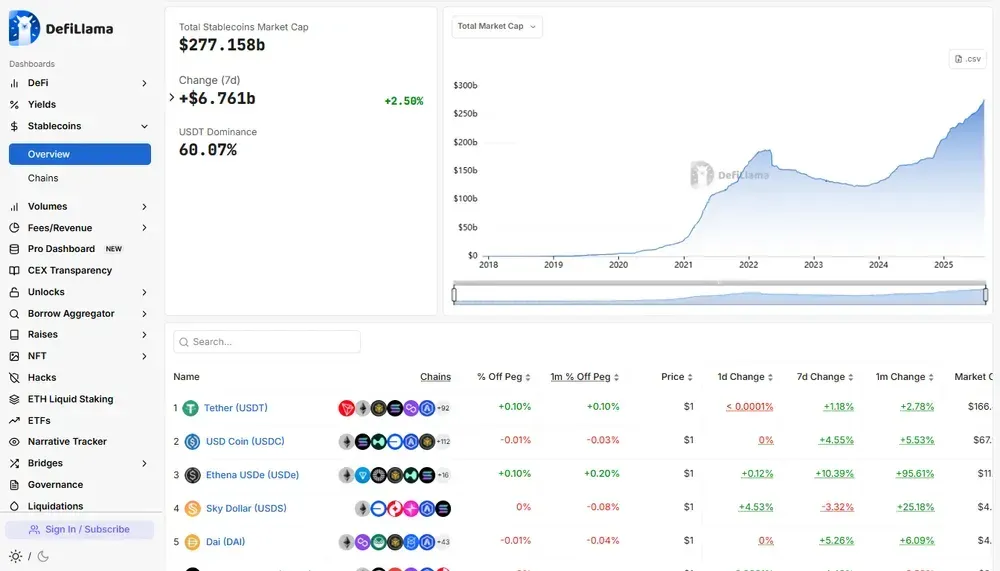
How Do Stablecoins Work?
Stablecoins work by maintaining a consistent value through mechanisms that link them to external assets, most commonly government-issued fiat currencies. To achieve stability, different models are used, ranging from collateralization with cash reserves to algorithmic mechanisms that balance supply and demand.
Here are the main types of stablecoins:
- Fiat-collateralized: These stablecoins are backed by reserves of traditional currency, ensuring that each token can be redeemed for a set value.
- Crypto-collateralized: They use other cryptocurrencies as collateral, overcollateralizing positions to manage volatility while maintaining a stable peg against fiat denominations.
- Algorithmic: These rely on smart contracts that adjust token supply automatically, balancing demand and supply to preserve the intended peg.
- Hybrid: Combining multiple models, hybrids offer redundancy by mixing fiat reserves, crypto collateral, or algorithmic adjustments to increase reliability and trust.
- Gold-backed: Pegged to gold reserves, these stablecoins, also known as gold-backed cryptocurrencies, provide stability by relying on a historically trusted store of value.
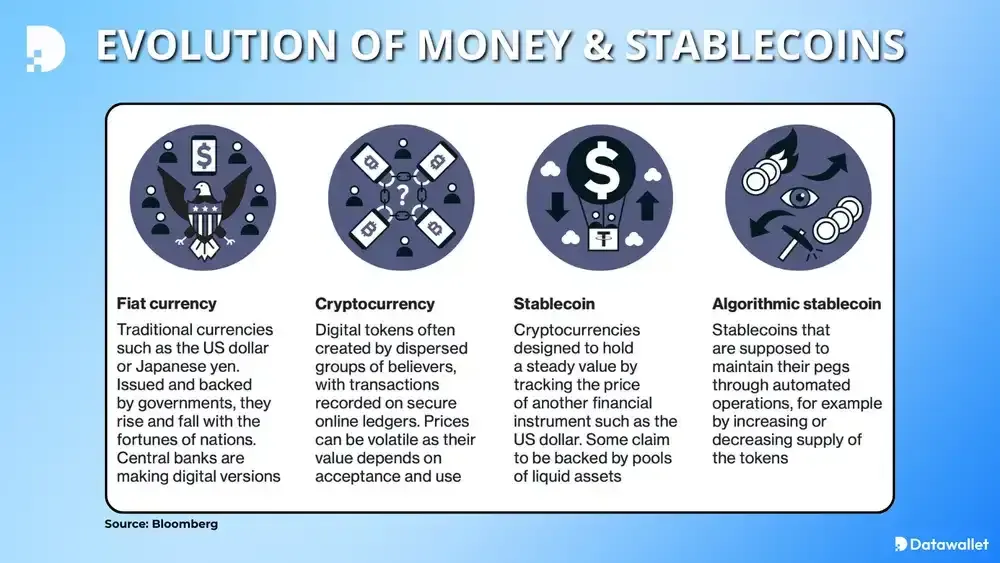
How to Evaluate Stablecoin Safety
When evaluating stablecoin safety, our team of researchers relies on a framework built on reviews of smart contract logic, regulatory filings, reserve attestations, and historical market stress events.
Here are the key steps to consider:
- Regulatory compliance: Stablecoins should operate under clear legal frameworks (MiCA in the EU and GENIUS in the US), with licensing or oversight that reduces systemic risk and adds transparency.
- Reserve transparency: Regular, verifiable audits of reserves (like those of Circle) are essential to ensure collateralization claims are accurate and user redemption rights are protected.
- Liquidity strength: Adequate reserves, strong banking partnerships, and consistent trading volumes guarantee redemption availability and minimize risks of sudden illiquidity.
- Technology security: Resilient smart contracts, secure custody methods, and well-designed risk controls help protect user funds from exploits or failures.
- Market reputation: A proven track record of stability, regulatory wins, and community trust reflects long-term reliability and institutional confidence.
What are the Safest Stablecoins?
We reviewed the top 40 stablecoins listed on DefiLlama and CoinMarketCap, assessing their moat, product-market fit, and regional dominance. Narrowing further, we examined network preference and use as perpetual futures collateral on major exchanges to identify the four safest fiat-pegged cryptocurrencies in 2025.
To make this clearer, the table below summarizes how the four safest stablecoins stack up across supply, backing, regulation, and strengths:
1. USD Coin (USDC)
USDC, issued by Circle, has $67.53 billion in circulation and $26 trillion lifetime onchain volume, showing unmatched institutional adoption. Its regulatory moat includes full MiCA compliance via a French EMI license, making it the first truly transatlantic stablecoin.
The token is natively issued on 23 blockchains, dominating Solana and Base while seamlessly bridging liquidity through Circle’s CCTP protocol. It is also the preferred collateral on perpetual venues like Binance and Hyperliquid, supported by deep liquidity and favorable maker fees.
USDC’s design prioritizes transparency, direct redemption, and alignment with US and EU regulators, setting it apart as uniquely policy-anchored. With integrations into Coinbase, Visa, and Stripe, it powers both consumer payments and institutional rails, cementing its role as the safest stablecoin.
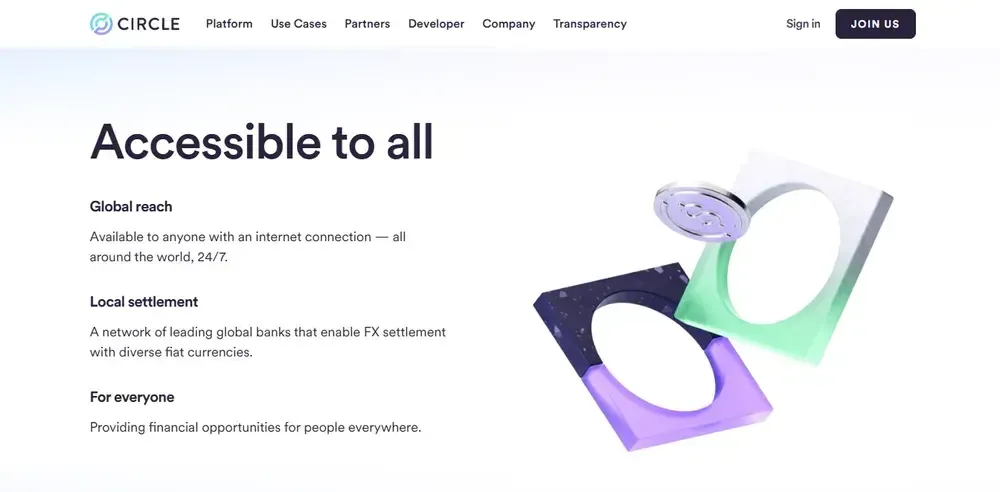
2. Tether (USDT)
Tether USDT remains the largest stablecoin by scale, with $81.3 billion circulating on Tron and $69.3 billion on Ethereum alone. Its moat derives from a decade-long operational track record, global liquidity dominance, and first-mover advantage in stablecoin adoption across exchanges.
In 2024, Tether reported $5.2 billion H1 profits, primarily from $97.6 billion in US Treasuries alongside gold and bitcoin holdings. Despite regulatory scrutiny, USDT retains an unmovable market position as the preferred liquidity rail, with consistent dominance in CEX and DeFi collateral markets.
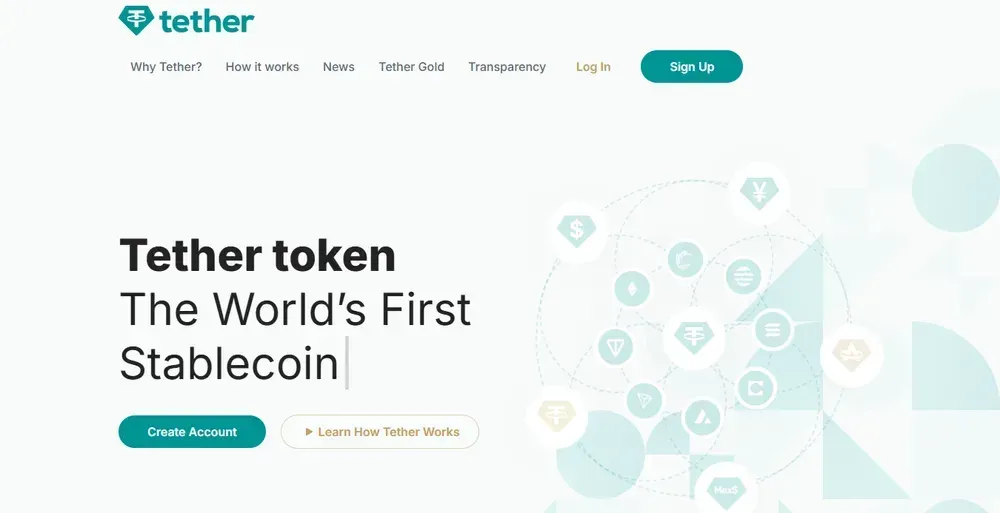
3. Ethena USD (USDe)
Ethena’s USDe is a delta-neutral synthetic dollar backed by staked ETH, liquid assets, and perpetual market hedges for stability. Its moat lies in being crypto’s first fully onchain, censorship-resistant stablecoin that minimizes reliance on traditional banking infrastructure.
Revenue is generated through perpetual funding spreads, staking yields, and tokenized RWA rewards, creating a sustainable, crypto-native economic model. Exposure to BlackRock’s BUIDL, a tokenized US Treasury fund, adds institutional-grade collateral and ties Ethena to TradFi infrastructure.
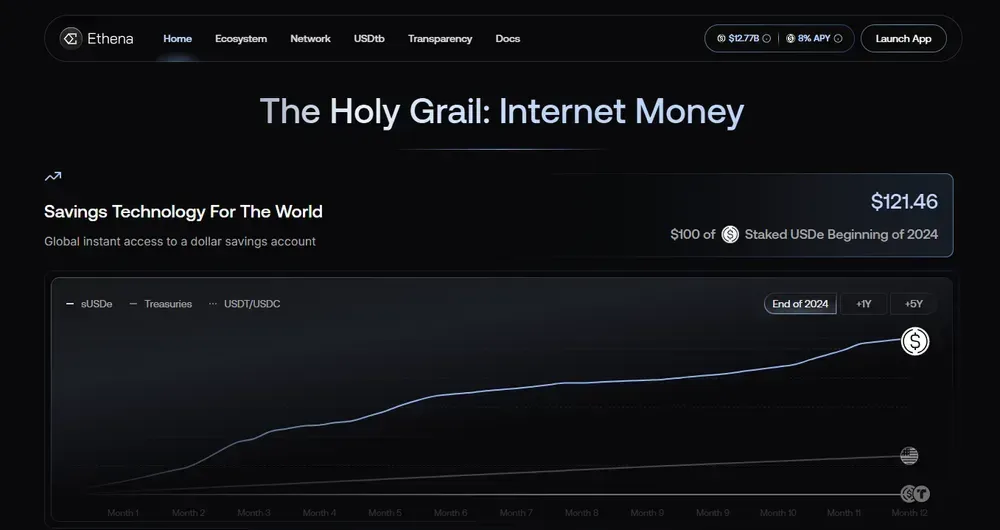
4. Euro Coin (EURC)
EURC, issued by Circle, is the leading euro-backed stablecoin with €196.43M circulation and full MiCA regulatory compliance. Its moat stems from regulatory legitimacy in Europe, transparent reserve attestations, and Circle’s established credibility as issuer of USDC.
Natively available on Ethereum, Solana, Avalanche, Base, and Stellar, EURC enables euro liquidity across both DeFi and institutional markets. It is widely used for forex trading, euro-denominated payments, and effortless EUR ↔ USDC swaps via Circle Mint, strengthening its regional dominance.
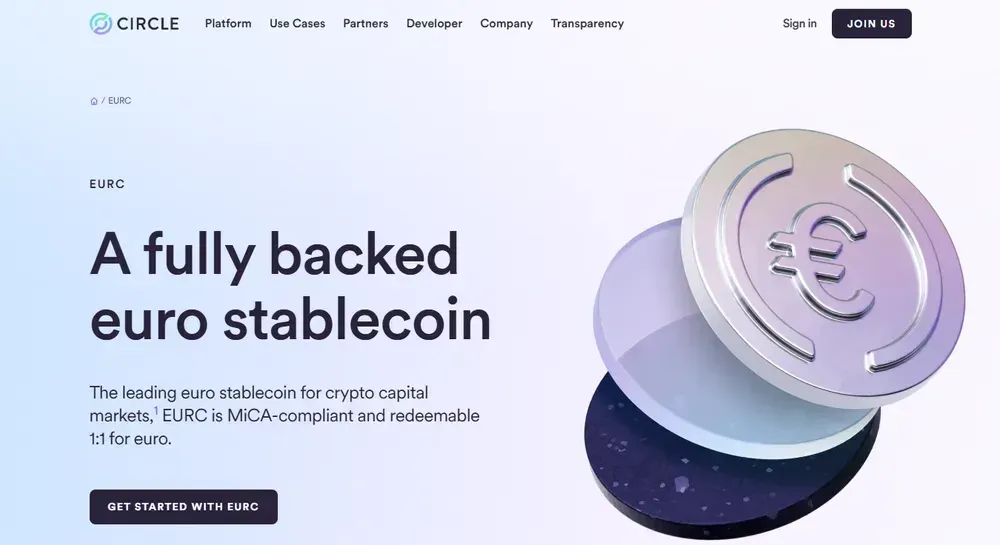
What is The Safest Decentralized Stablecoin?
The safest decentralized stablecoin is defined not by regulatory backing but by its onchain collateralization, governance design, and peg stability. Evaluating DeFi stablecoins requires looking at how well they scale, resist censorship, and preserve value during volatile market conditions.
Here are the leading decentralized contenders:
- USDS: MakerDAO DAI's successor under Sky, retaining overcollateralization, governance, and adding Sky Savings Rate and secure SkyLink bridging for resilience.
- FRAX: Maintains 100% exogenous collateralization, employs AMO subprotocols and RWAs, uses USD oracles, and incorporates IORB-linked yield mechanisms.
- GHO: Aave's overcollateralized issuance lets users mint against deposits; governance sets parameters, and revenues accrue directly to the Aave DAO.
- USDD: Tron-native, collateralized by TRX and USDT, with community governance and lending integrations enabling issuance, rewards, and protocol stability mechanisms.

Stablecoins Risks
Stablecoins face unique vulnerabilities that extend beyond transparency and regulation, often surfacing only at scale or under extreme conditions. Here are the main risks to consider:
- Concentration risk: Stablecoin dominance by a handful of issuers amplifies systemic exposure if a single protocol experiences failure.
- CEX dependency: Heavy reliance on centralized exchanges for liquidity, especially in perps collateral, creates chokepoints vulnerable to outages or sanctions.
- Bridge exploits: Stablecoins deployed cross-chain depend on crypto bridges, which have historically suffered billion-dollar hacks and remain critical attack surfaces.
- Governance capture: Token-based voting can centralize control, allowing whales or insiders to sway risk parameters against minority stakeholders.
- RWA counterparty risk: Exposure to tokenized Treasuries and funds (e.g. BUIDL) inherits risks from traditional finance custodians and legal structures.
- Market fragmentation: Regional stablecoins like EURC or offshore-issued USDT can fragment liquidity pools, reducing capital efficiency and creating FX instability.
- Smart contract fallibility: Even protocols, verified by top smart contract auditors, have suffered exploits, since auditors miss edge cases and economic attacks often emerge only in production.
Recent and Upcoming Stablecoin Launches in 2025
The stablecoin market in 2025 is turning into a competitive arms race, with traditional fintechs and crypto incumbents pushing simultaneous launches.
PayPal USD (PYUSD) set the tone by embedding a dollar stablecoin directly into PayPal and Venmo, backed by deposits and treasuries. Soon after, Ripple USD (RLUSD) entered with a dual presence on Ethereum and XRP Ledger, targeting cross-border settlement and enterprise finance.
Not to be outdone, World Liberty Financial introduced USD1 through BitGo Trust, advertising it as a multi-chain settlement asset from day one. With major exchange listings securing liquidity quickly, its launch has been clouded by political scrutiny tied to Trump-affiliated ownership.
Momentum is now shifting to Asia, where governments are preparing their own entries into the market. Japan plans to approve JPYC as the first yen stablecoin, Russia is exploring ruble-backed alternatives after USDT freezes, and China is cautiously piloting Hong Kong-based projects despite mainland restrictions.
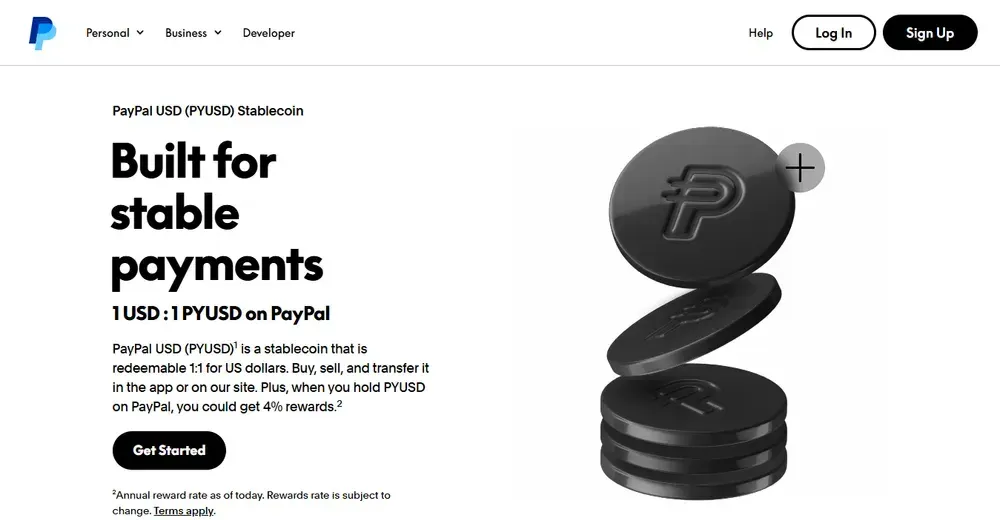
Final Thoughts
It’s a stablecoin world, and in the global search for safety against volatility and banking risks, USDC has proven to be the most trusted option, backed by transparent reserves and regulatory alignment.
The Atlantic corridor now sets legitimacy, with Washington’s GENIUS Act and Brussels’ MiCA creating the clearest frameworks for dollar and euro stablecoins, where Circle is the standard-bearer.
Dozens of new entrants have launched recently, from PayPal USD to Ripple USD, yet the market remains unfragmented, with Tether and Circle still commanding over 85% of all stablecoin liquidity and volume.
Frequently asked questions
What is the difference between stablecoins and cryptocurrencies?
Stablecoins are designed to maintain a fixed value, usually pegged to fiat currencies like the US dollar, making them practical for payments and savings. In contrast, other cryptocurrencies such as Bitcoin or Ethereum fluctuate in price, serving more as speculative assets or programmable infrastructure.
How is USDC different from a central bank digital currency (CBDC)?
USDC is issued by a private company, Circle, and fully backed by cash and Treasuries held in regulated institutions. A CBDC, by contrast, is issued directly by a central bank, carries sovereign risk, and would function as legal tender in the domestic economy.
Is DAI still a safe decentralized stablecoin in 2025?
DAI was originally launched by MakerDAO as an overcollateralized stablecoin backed by crypto assets like ETH, earning a reputation for resilience.
MakerDAO is in the middle of its “Endgame” transition into Sky Protocol, where DAI holders upgraded into USDS, a successor stablecoin offering expanded collateral types, Sky Savings Rate yields, and cross-chain functionality through SkyLink.
While DAI demonstrated years of relative stability, today’s safer choice is USDS, which builds on MakerDAO’s framework with broader adoption, transparency, and updated governance.
What are some examples of failed stablecoin projects?
Several stablecoins have collapsed due to flawed designs, mismanagement, or systemic shocks. Notable examples include TerraUSD (UST), which imploded in 2022, Basis Cash, which failed to sustain its algorithmic peg, and Iron Finance’s TITAN-backed stablecoin, which collapsed after a bank-run style liquidity crisis.

Written by
Antony Bianco
Head of Research
Antony Bianco, co-founder of Datawallet, is a DeFi expert and active member of the Ethereum community who assist in zero-knowledge proof research for layer 2's. With a Master’s in Computer Science, he has made significant contributions to the crypto ecosystem, working with various DAOs on-chain.
%20Logo.svg)
.webp)

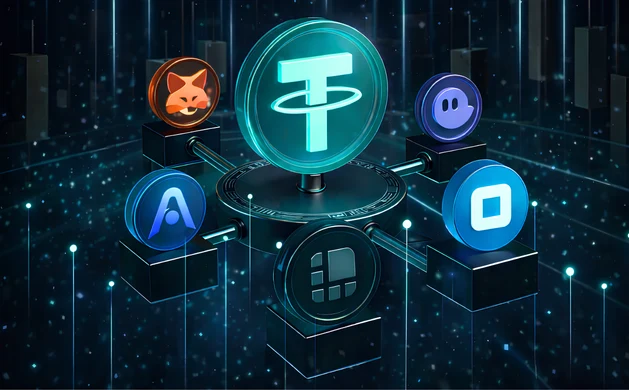
%20(1).webp)




